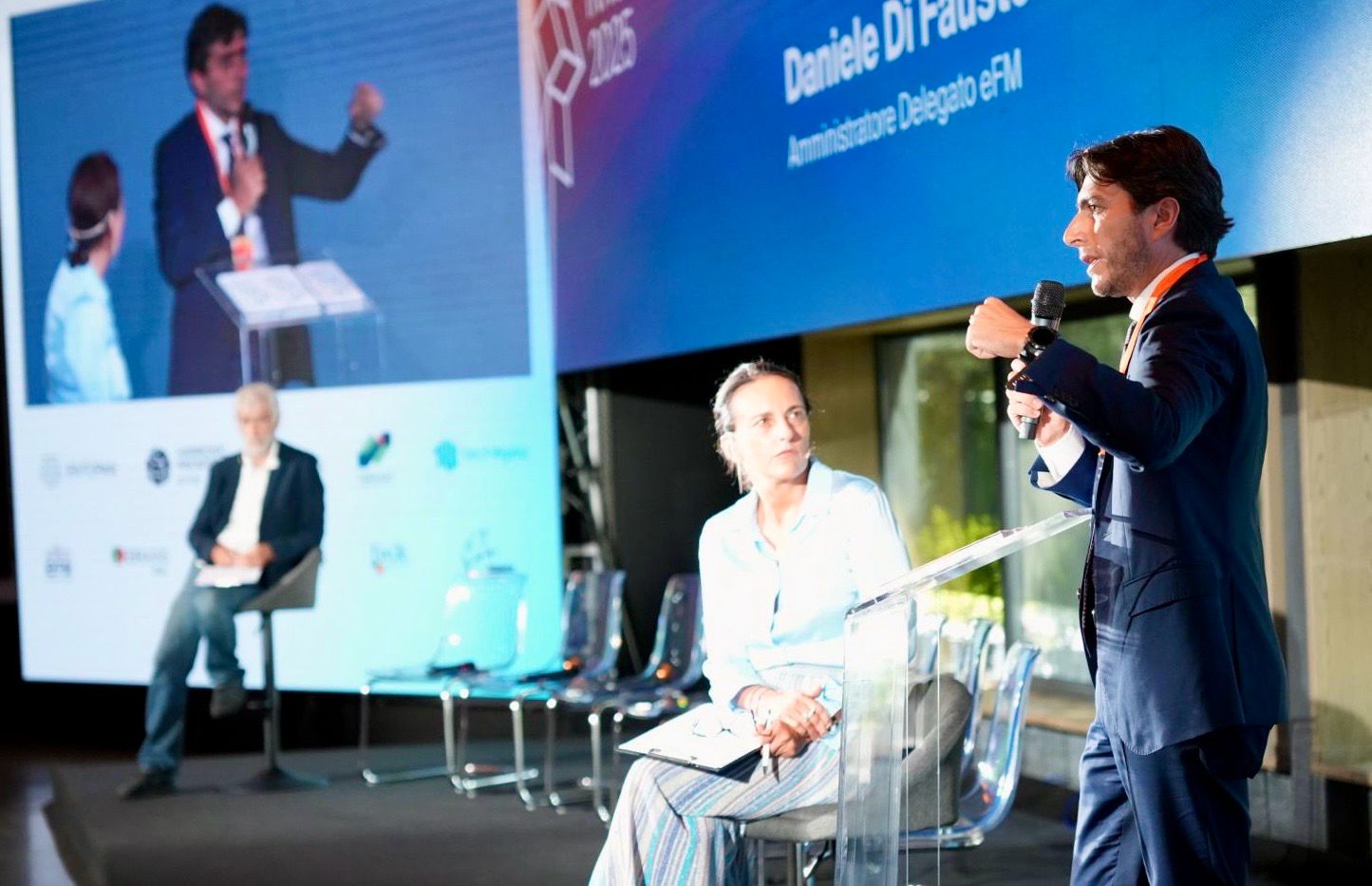The workplace between AI, innovation and human centrality
The labour market is undergoing a profound and unprecedented transformation. Artificial intelligence is no longer an accessory technology—it has become the driving engine of the digital workplace evolution. What is changing are not only the tools, but also people’s expectations, leadership roles and the way we manage spaces, time and professional relationships.
According to Gartner Predicts 2025: Empowering Workers With Intelligent Applications, only 23% of digital workers report being fully satisfied with the applications they use every day. Yet, today’s technologies offer extraordinary potential—it is time to radically rethink how organizations design the work experience.
A McKinsey study, Superagency in the Workplace: Empowering People to Unlock AI’s Full Potential, estimates that AI could generate up to $4.4 trillion in global economic growth. But its real impact is measured in the everyday: AI is not just about automation—it is an intelligent ally, capable of supporting decisions, orchestrating complex activities and amplifying creativity and productivity.
This is the dawn of the superagency: a new alliance between people and technology to unlock the full potential of human intelligence.
However, only 1% of companies consider themselves truly mature in AI adoption. The real challenge is not technological—it is cultural. What is needed are new models of leadership, continuous learning and bolder visions.
In this context, eFM positions itself as an enabler of a new paradigm: evolving from space management to people empowerment, through an advanced digital governance framework built upon three pillars:
- Digital Twin: dynamic virtual models for simulation and predictive analysis of assets.
- Generative Design: spatial configurations optimized according to actual relationships and use patterns.
- Smart Contracts: flexible, real-time, performance-based agreements.
Complementing these is the use of AI-based digital assistants for Facility and Property Management—solutions capable of reading real-time data, generating optimization scenarios and creating dynamic budgets following Zero-Based Budgeting logic.
eFM’s approach goes beyond efficiency—it promotes a new workplace culture, centered on People & Place, where every space is an experience and every person has unique needs.
Solutions must therefore be dynamic, adaptive and responsive.
The workplace is no longer a static physical space—it is a digital ecosystem in continuous evolution.
Gartner defines it through three key concepts:
- Integrated Intelligence
- Adaptive Experience
- Autonomous Orchestration
eFM interprets this vision through tangible tools that combine innovation, sustainability and well-being.
Not by chance, its platform MySpotHub has been recognized by Gartner among the Cool Vendors for its Experience-as-a-Service approach.
Yet, technology alone is not enough. What is needed is conscious leadership—capable of seizing the opportunities of AI without losing sight of the human dimension.
The workplace of the future will be shaped by those who can combine speed with safety, vision with pragmatism, data with culture.
Because the real competitive advantage does not lie in space, it lies in the people who bring it to life.
.png)

.png)

.png)